Open Source Immutable Database
High performance and easy to integrate, supports both Key/Value & SQL.
Cryptographical client-verification, tamper-resistant and auditable. Versioned and temporal queries subject to cryptographic verification.
immudb was chosen the fastest growing Open Source Project by Ross Index
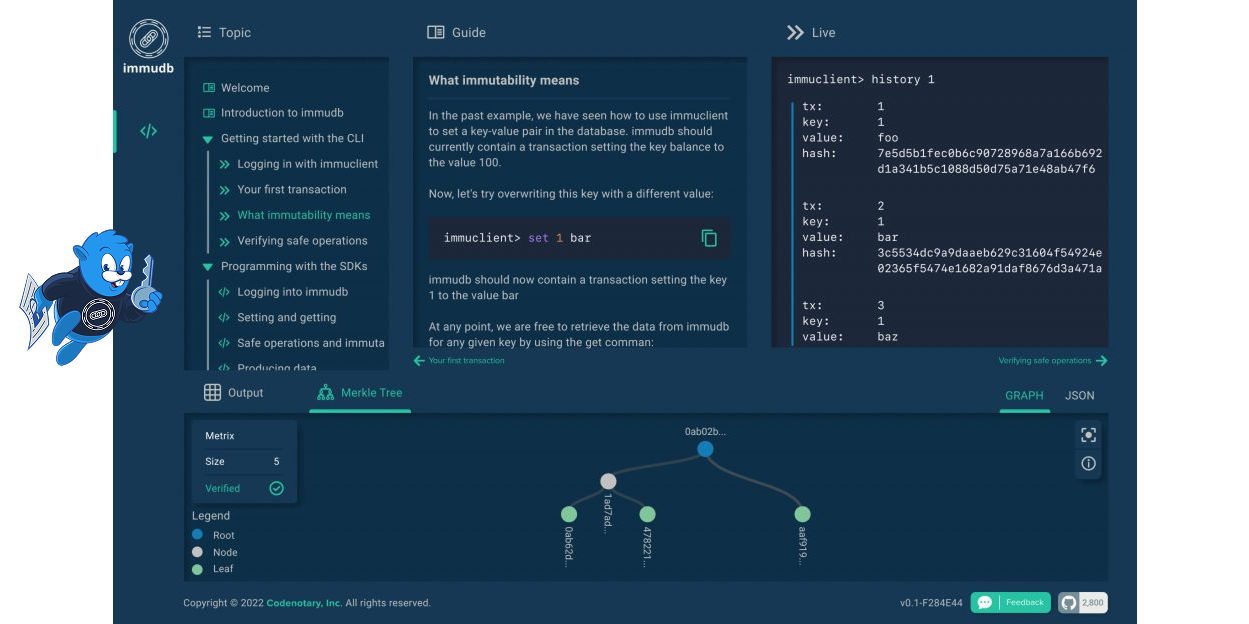
docker run -it -d -p 3322:3322 --name immudb codenotary/immudb:latest





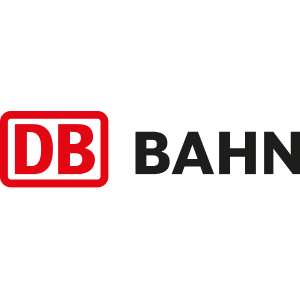


















Why Immudb?
Use cases
DevOps
Financial
E-com
IoT
Medical
Data Storage

Check out our documentation to get started!
Any questions, ideas or thoughts? Join our Discord channel to talk to other users and devs!
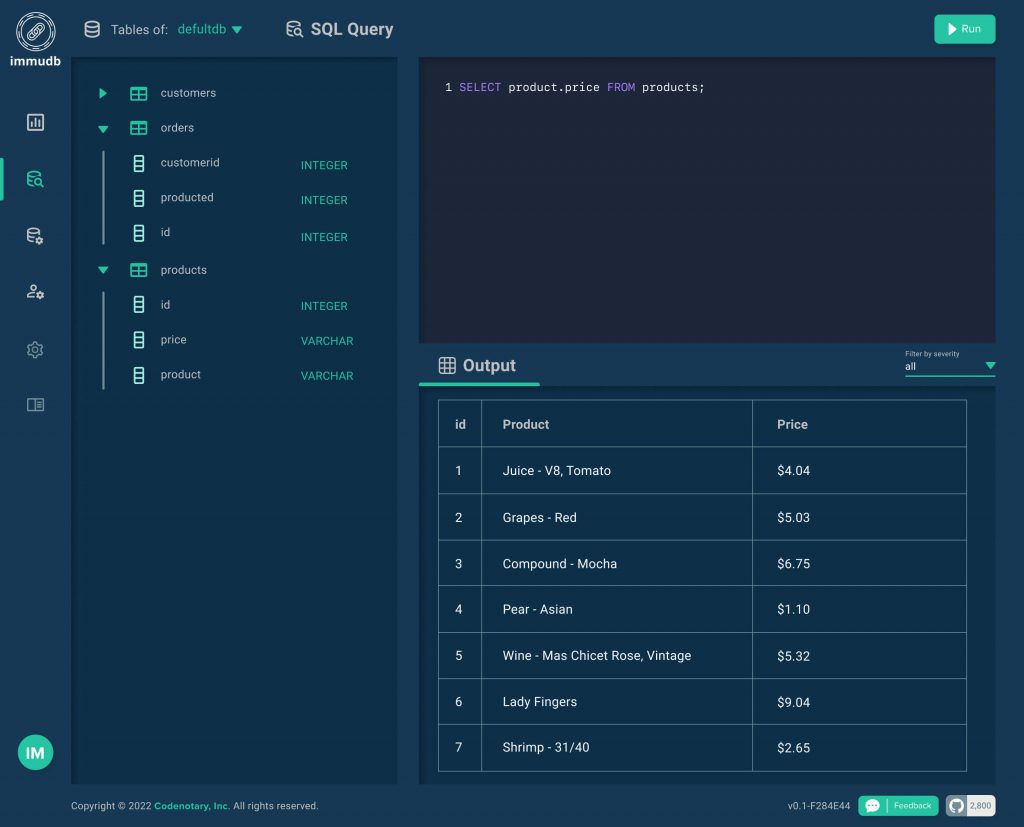
Integration Features
Consistency check built-in
immudb architecture has built-in verification and audit functionality:
- immudb server is continuously checking disk/memory consistency
- immudgw is continuously checking the date consistency and integrity
- immuclient has built-in data consistency and integrity checks
- APIs provide data ownership proof, verification and integrity functions
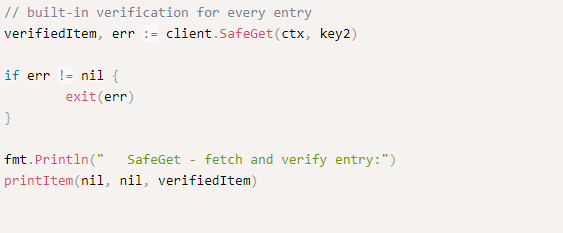
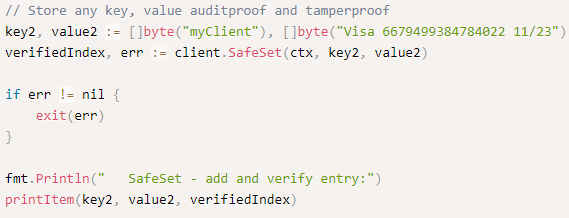
Very high throughput, immutable database with cryptographic verification
In most use cases, immudb is an excellent replacement for complex, cumbersome blockchain solutions.
- Store every update to sensitive database fields (credit card or bank account data) of an existing application database
- Storage CI/CD recipes to build and deployment pipelines
- Store public certificates
- Store tamper-proof log streams (i. e. audit logs)
Intuitive setup
immudb is built with simplicity in mind:
- Use the prebuilt binaries or container images for a fast start
- Install, manage and run immudb and immugw as services (use immudbadmin CLI)
- RESTful interfaces and easy to use clients
- Combine with any existing application
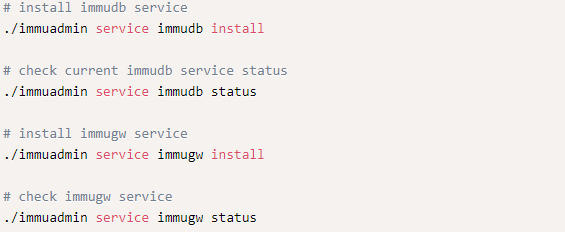
Runs On
Connectors






Architecture
x86
x64
ARM
s390x
RISC-V
Operating Systems

Unmatched performance
immudb can handle millions of writes per second.
The following table shows performance of the embedded store inserting 1M entries on a 4-core Intel® Xeon® E3-1275v6 CPU and SSD disk with 20-100 parallel workers.
Benchmark system configuration:
- 4-core Intel® Xeon® E3-1275v6 CPU
- SSD disk
Latest Updates
Check out our blog posts to stay up to date
Read our Blog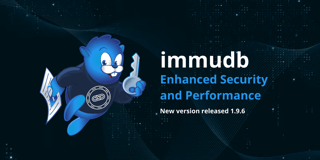
immudb v1.9.6 Released: Enhanced Security and Performance
The latest release of immudb introduces a host of improvements designed to enhance performance, expand SQL functionality, improve query handling, and increase compatibility with PostgreSQL. These changes make immudb more efficient, powerful, and user-friendly. Let's dive into the details of what's new and why it matters.
Read Article
From AWS QLDB to immudb: A French Financial Services Company Success Story
When AWS announced the discontinuation of its Quantum Ledger Database (QLDB), financial institutions that relied on its immutable ledger capabilities were forced to find alternative solutions.
Read Article
immugorm: Simplifying immudb Queries with GORM
An ORM (Object-Relational Mapping) is a programming technique that bridges the gap between object-oriented programming languages and relational databases. In traditional relational databases, data is stored in tables consisting of rows and columns.
Read ArticleThe Open-Source Immutable Database
Run immudb easily on Linux, FreeBSD, Microsoft Windows, and macOS, along with other systems derived from them, such as Kubernetes and Docker.
Guardians of software™
Our mission is to protect the software supply chain using advanced AI technologies, while delivering customer-specific business outcomes through a world-class experience. We leverage the full capabilities of our applications to ensure our customers not only stay secure, but also achieve measurable value and resilience across their digital ecosystems.
6300 W Loop S Suite 240,
Bellaire, TX 77401, United States
